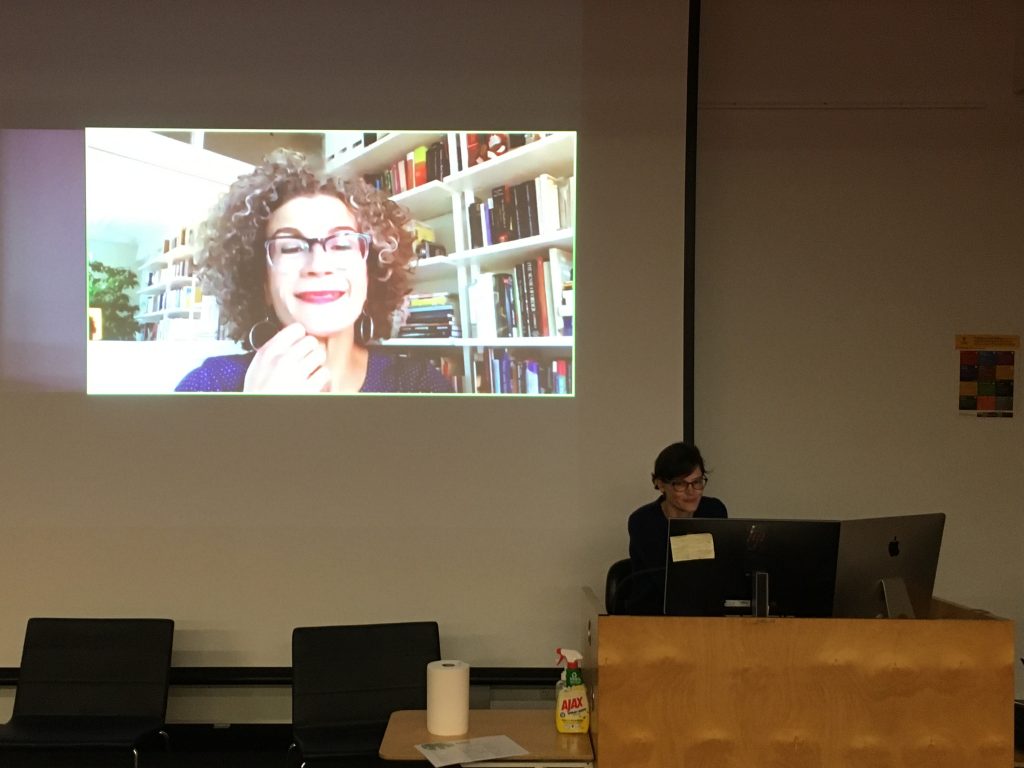The Sixth International Conference on Transdisciplinary Imaging at the Intersections between Art, Science and Culture
DARK EDEN
6 – 8 November 2020

The organisers of Dark Eden: The Sixth International Conference on Transdisciplinary Imaging at the Intersections between Art, Science and Culture wish to thank all contributors: key-note speakers; presenters; audience participants; and the facilities, security and technical personnel at UNSW Art & Design where our digital and physical presence was hosted. We appreciate the support, critical engagement and kind acknowledgements received before, during and after the conference from all involved. Conference attendance was high: one of the advantages of live streaming via Zoom is that registered participants had the opportunity to see and respond via live panel discussions to all conference presentations: a marathon that could also be framed as a necessitous democracy. It is due to the interest and avid support from members of the global academic and arts community that we can call the conference a resounding success.
The conference comprised three stimulating days of key-note lectures and presentations by over sixty international professionals including creative arts practitioners, media artists, science and technology researchers, designers, curators, historians, critics and theorists, presenting new and innovative work exploring the theme of Dark Eden. Our distinguished keynote speakers Timothy Morton, Laura Marks and Barbara Bolt covered diverse topics such as beauty, cognition, freedom, media consumption, magic, performativity, matter, embodied imaging, contemporaneity and human and non-human agents, to touch lightly on their compelling provocations.
Amidst the backdrop of the on-going pandemic, social unrest and the US election, the theme of Dark Eden elicited a range of passionate discussion and debate regarding the fate and contours of image culture in what has been a dark year. If transdisciplinarity is an accepted feature of the image in the 21st century, Dark Eden exposed its dichotomous nature, the way the image double-deals, both revealing and deceiving, as well as its vibrant human and non-human associations and implications. Through a broad range of ideas, the conference presentations uncovered the lucidity and stagecraft of the image, its capacity to reflect and refract, forcing us to contemplate and traverse the unstable ground between appearance and truth, fact and fiction, even as we understand this tension to produce a third space where multiple image-based ‘realities’ co-exist. Moreover, contributions from our presenters underscored both the visible and invisible machinations of artistic, scientific and cultural production and their relations in this era of pandemics, climate crisis, disinformation, and augmented intelligence. A central question that emerged in response to the Dark Eden theme examined whether images are indeed ‘alive’, as they are ‘live to’ the world. This idea begs further inquiry: What does the image see? And what does it reflect? How does the image facilitate or foreclose? And how does it forecast? How will we construct, critique and validate a new agency of the image in the future?
These are no doubt questions that will continue to preoccupy artists, writers and scholars in times to come. In light of this, we contemplate possible conceptual contexts for the next iteration of the Transdisciplinary Imaging Conference that centre on the theme of the Nomadic Image. The nomadic image may have the potential to de-territorialise, de-colonise or radically uncouple time and space, contesting any sense of a comfortably situated entity. Referencing the nomadic pastoralism that has shaped the history of the Kyrgyz people, in whose capital, Bishkek, the seventh Transdisciplinary Imaging Conference will be held, the Nomadic Image also reflects the very real spectre of displacement: of climate and political refugees, of the fugitive, the outcast, the exiled. But perhaps it can also be a harbinger of repair and freedom: an abandoning of the need to sanction, label or colonise, and a de-centring of Western hegemony. Whatever the case, and to continue the Dark Eden metaphor, let our expulsion from the garden lead us to new possibilities as we wander into the realm of the unknown, unfixed and transient.
Chelsea Lehmann.
Conference Chair: Professor Paul Thomas, Art and Design, UNSW Sydney
Co-Chairs: Dr David Eastwood, Art and Design, UNSW Sydney | Dr Chelsea Lehmann, National Art School
Proceedings Chair: Dr Edward Colless, Victorian College of the Arts, University of Melbourne
DARK EDEN Transdisciplinary Imaging Conference 2020